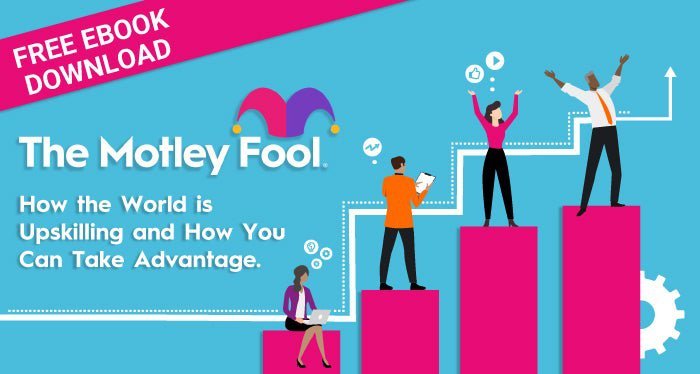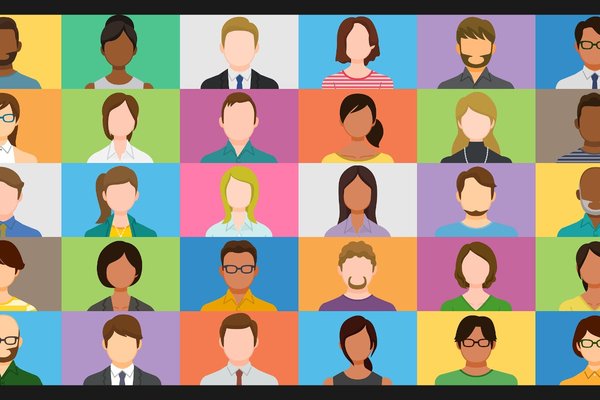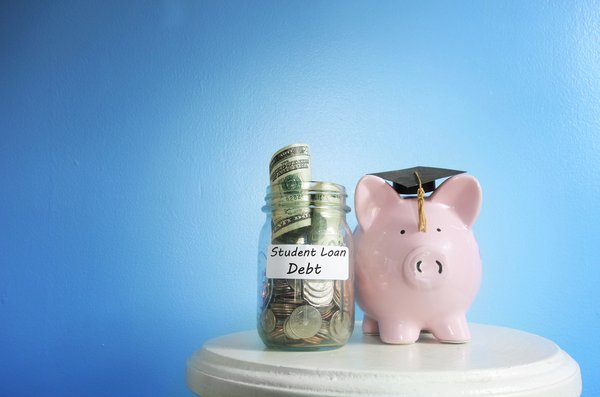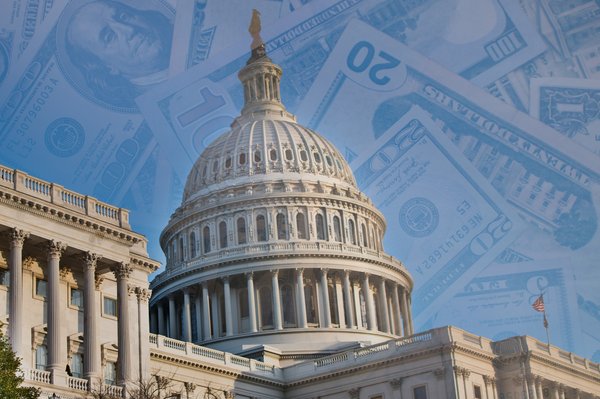Pundits claim that "The Great Resignation" is taking place. They might not be wrong.
4.3 million Americans quit their jobs in August 2021 alone, equivalent to about 3% of the workforce and more than the population of Los Angeles. And companies are desperate to hire -- there were 10.4 million job openings that same month.
Since the start of the pandemic, 20% of workers have changed careers, according to a survey from Prudential. 46% of employees are considering a career change, per data collected by Microsoft.
To get a better picture of who is changing careers and why, The Motley Fool surveyed 2,000 Americans who have changed careers since March 2020.
Here's what we found.
Key findings
- Americans who have changed careers since the start of the COVID-19 pandemic were likely to be millennials and have over 5 years of work experience.
- Over a third of millennials plan to look for a new job post-pandemic, the largest percentage of any generation.
- Management occupations were most commonly transitioned out of and into during the pandemic.
- Two-thirds of those who changed careers since March 2020 did so as a direct result of the COVID-19 pandemic.
- Work-life balance, pay, work culture, and concerns about opportunities for career growth were other top reasons for changing careers during the pandemic.
- 58% of those who changed careers since March 2020 took a pay cut to do so.
- 61% received an industry-recognized credential as part of their career change and 68% learned a new skill without the support of their employer.
Individuals that changed careers during the pandemic were likely to be millennials and have over 5 years of work experience
Americans who have changed careers since March 2020 were more likely to be millennials with five or more years of work experience.
Millennials accounted for 55% of those who changed career paths, despite only composing 35% of the labor force in 2017.
Gen Z was overrepresented among career changers, as well. They accounted for about 5% of the workforce in 2017 but 15% of those who changed career paths since March 2020.
The percentage of Gen X and baby boomers who changed careers was lower than their 2017 share of the labor force.
| Generation | Percentage who have changed career paths since March 2020 |
|---|---|
| Silent Generation | 0.5% |
| Baby boomers | 7% |
| Gen X | 22.5% |
| Millennials | 54.9% |
| Gen Z | 15.3% |
77% of those who changed careers had five or more years of work experience
This suggests that work experience -- even in a different field -- is still valued by employers. It may also be a sign that workers are willing to change careers despite having put a significant number of years into their previous one.
| Years of total work experience | Share of career changers since March 2020 |
|---|---|
| 0–1 | 8% |
| 2–4 | 16% |
| 5–7 | 20% |
| 8–10 | 19% |
| 10+ | 38% |
Over a third of millennials plan to look for a new job post-pandemic, the largest percentage of any generation
34% of millennials say they will look for a new job once the pandemic subsides, a larger percentage than any other generation, according to a survey from Prudential.
Millennials being the most eager generation to change jobs is in line with that generation accounting for the majority of those who have changed careers since the pandemic began. Of course, COVID-19 has created economic hardship for millions of Americans and many may not have been in a position to change careers over the last year and a half.
The data from Prudential also confirms that it's not just millennials who want to change careers -- 26% of all workers say they plan to look for a job when the pandemic is no longer an issue.
| Generation | Percentage who "strongly" or "somewhat" agree they're planning to look for a new job post-pandemic |
|---|---|
| Baby boomers | 10% |
| Gen X | 24% |
| Millennials | 34% |
| All workers | 26% |
Two-thirds of those who changed careers since March 2020 did so as a direct result of the Covid-19 pandemic
Two-thirds of respondents said they changed careers as a direct result of the pandemic -- no surprise given the profound effect Covid-19 has had on the economy and daily lives of Americans.
71% of millennials reported changing career paths as a direct result of the pandemic, more than any other generation. Baby boomers and members of Gen Z were least likely to have changed careers as a direct result of the pandemic, although over half of career changers in those generations still attributed their career change to COVID-19.
Women were 10% more likely than men to have changed careers due to COVID-19 (62% of men vs. 72% of women).
| Demographic group of career changers | Changed career paths as a direct result of COVID-19 |
|---|---|
| Silent Generation | 67% |
| Baby boomers | 58% |
| Gen X | 67% |
| Millennials | 71% |
| Gen Z | 58% |
| Male (total) | 62% |
| Female (total) | 72% |
| Total | 67% |
Management was the most popular career transitioned out of and into
About 8% of those who changed careers moved out of a management position while over 16% moved into a management role -- not entirely surprising, given that management is the fifth-largest occupation in the U.S.
Career changers who took our survey also commonly transitioned into business and financial operations, computer and mathematics roles, healthcare practitioners and technical roles, and sales and related occupations.
In addition to management, five other occupational groups each saw more than 5% of respondents transition out: sales and related occupations, business and financial operations, healthcare support, food preparation and serving, and educational instruction and library occupations.
Given that two-thirds of respondents said their career change was a direct result of the pandemic, it's no surprise that most of those occupations were impacted by COVID-19. Consumers have limited in-person shopping and dining, which likely led workers to transition out of roles in sales and food services. And there have been countless reports of burnout among healthcare workers and educators over the last year and a half.
| Occupational group | Percentage of career changers who transitioned out of sector | Percentage of career changers who transitioned into sector |
|---|---|---|
| Management | 8% | 16% |
| Business and financial operations | 7% | 9% |
| Computer and mathematical | 5% | 8% |
| Healthcare practitioners and technical | 5% | 5% |
| Sales and related | 7% | 5% |
| Other | 4% | 5% |
| Healthcare support | 6% | 4% |
| Community and social service | 2% | 4% |
| Office and administrative support | 5% | 4% |
| Educational instruction and library | 6% | 4% |
| Arts, design, entertainment, sports, and media | 4% | 4% |
| Construction and extraction | 5% | 3% |
| Life, physical, and social science | 3% | 3% |
| Architecture and engineering | 3% | 3% |
| Food preparation and serving related | 6% | 3% |
| Production | 4% | 3% |
| Transportation and material moving | 3% | 3% |
| Building and grounds cleaning and maintenance | 2% | 3% |
| Installation, maintenance, and repair | 2% | 3% |
| Legal | 3% | 2% |
| Personal care and service | 4% | 2% |
| Farming, fishing, and forestry | 2% | 2% |
| Protective service | 3% | 2% |
Workers were more likely to stay in the gig economy or at an in-house job than switch as a result of a career change
Survey respondents who changed careers were less likely to switch between gig or contract work and in-house work than they were to stay in their current category.
A third of workers that changed careers stayed in-house and 30% stayed in the gig economy or with contract work.
Just under 20% switched either from the gig economy or contract work for an in-house job or moved from an in-house job to the gig economy or a contract job.
| Reason for changing careers | Percentage of career changers |
|---|---|
| I left a gig economy/contract job for in-house work. | 18% |
| I left an in-house job for a gig economy/contract job. | 19% |
| I changed career paths but stayed in gig economy/contract work. | 30% |
| I changed career paths but stayed working in-house. | 33% |
Finding better work-life balance, pay, and work culture were common reasons for changing careers
Aside from the pandemic, the other most commonly cited factors for changing careers were better work-life balance, pay, and work culture.
Concerns about lack of diversity and poor benefits in their previous field were the least cited reasons.
Almost 40% of survey respondents said they had changed careers because they always wanted to explore their new career path, which suggests that many used the pandemic's disruption as an opportunity to make a career move they had long been considering.
| Reason for career change since March 2020 | Percentage of respondents |
|---|---|
| Seeking better work-life balance | 42% |
| Seeking better pay | 41% |
| I always wanted to explore this new career path | 39% |
| Poor work environment/work culture in previous field | 35% |
| Concerned about career opportunities in previous field | 33% |
| Concerns about lack of diversity in previous field | 28% |
| Poor benefits in previous field | 27% |
| Other | 13% |
The higher a respondent's income, the more likely they were to change career paths to search for better pay, better benefits, and work-life balance.
| Reported salary | Seek better work-life balance | Seek better pay | Always wanted to explore new career path | Poor work environment/culture in previous field | Concerned about career opportunities | Poor benefits in previous field |
Concerns about lack of diversity in previous field |
Poor benefits in previous field | Other |
|---|---|---|---|---|---|---|---|---|---|
|
Under $25,000 |
33% | 39% | 30% | 29% | 21% | 23% | 23% | 23% | 17% |
|
Between $25,000 and $49,999 |
41% | 44% | 28% | 33% | 25% | 22% | 22% | 22% | 13% |
|
Between $50,000 and $74,9999 |
37% | 33% | 32% | 30% | 30% | 24% | 24% | 24% | 19% |
|
Between $75,000 and $99,999 |
38% | 37% | 39% | 31% | 37% | 27% | 27% | 27% | 15% |
|
Between $100,000 and $124,999 |
46% | 41% | 40% | 41% | 36% | 30% | 30% | 30% | 11% |
|
Between $125,000 and $149,999 |
44% | 43% | 55% | 43% | 40% | 30% | 30% | 30% | 9% |
|
$150,000 or more |
50% | 50% | 52% | 41% | 46% | 35% | 35% | 35% | 4% |
|
Prefer not to say |
43% | 39% | 32% | 28% | 26% | 18% | 18% | 18% | 11% |
Men were more likely than women to say that career opportunities, work environment, and lack of diversity in their previous field motivated them to change career paths.
Overall, 79% of those who changed careers said it was important that their new job allow for remote work at least part-time. 56% of respondents' previous jobs allowed for remote work, and 66% ended up in roles that allow remote work.
80% of workers planning to look for a new job cited concern about career growth
Of those who plan to look for a new job after the pandemic subsides, 80% said concern about career growth was a motivating factor, according to a survey from Prudential.
That's a significantly higher percentage than reported by all workers, of which just under half were concerned about career growth.
| How concerned are you about your career growth? | All workers | Workers planning to look for a new job (25% of respondents) |
|---|---|---|
| Concerned | 49% | 80% |
| Not concerned | 50% | 19% |
58% of those who changed careers since March 2020 did so while employed
Over half of those who changed careers were able to do so while still employed.
That 58% of respondents changed careers while employed is likely additional evidence that the pandemic, despite the hardships it has caused, created the conditions necessary for workers to change careers not necessarily out of necessity but for other reasons.
| Employment status at time of career path change | Percentage of surveyed career changers |
|---|---|
| Employed | 58% |
| Unemployed | 42% |
58% took a pay cut to change careers
Over half of career changers we surveyed took a pay cut to change career paths.
Gen X, millennials, and members of the Silent Generation were the most likely to have taken a pay cut to switch careers.
More men took a pay cut than women to change careers during the pandemic.
| Demographic group of career changers | Took a pay cut to change career paths | Did not take a pay cut to change career paths |
|---|---|---|
| Silent Generation | 67% | 33% |
| Baby Boomers | 53% | 47% |
| Gen X | 64% | 36% |
| Millennials | 59% | 41% |
| Gen Z | 50% | 50% |
| Male (total) | 64% | 36% |
| Female (total) | 51% | 49% |
| Total | 58% | 42% |
The higher the respondent's income, the more likely they were to have taken a pay cut to change careers. Almost 75% of those who made $150,000 or more took a pay cut, while 52% of those who make between $50,000 and $74,999 accepted less income to change careers.
This may be attributable to higher-income respondents having more financial breathing room.
For example, the difference between making $50,000 and $45,000 could be the difference between setting aside money for a child's college fund or the ability to pay the bills. Meanwhile, the implications of going from a job that offers $150,000 salary to one that offers $145,000 are likely to be less severe.
| Reported salary | Percentage of respondents who took a pay cut to change career paths |
|---|---|
| Under $25,000 | 52% |
| Between $25,000 and $49,999 | 46% |
| Between $50,000 and $74,9999 | 52% |
| Between $75,000 and $99,999 | 55% |
| Between $100,000 and $124,999 | 65% |
| Between $125,000 and $149,999 | 66% |
| $150,000 or more | 74% |
| Prefer not to say | 50% |
Taking a pay cut is a significant decision with many pros and cons to consider.
On one hand, taking a pay cut to move into a dream job or career track may be a no-brainer. And pay cuts can be offset by other forms of compensation, like better benefits. It may also allow a move to a location with a lower cost of living, making the pay cut more manageable.
On the other hand, taking a pay cut can be financially painful and it could take years to attain the previous salary.
That over half of those who changed careers during the pandemic took a pay cut to do so is further evidence that workers are eager to make career moves now.
61% received an industry-recognized credential as part of their career change
Changing careers can require learning new skills -- a reality that the majority of respondents embraced. 61% received an industry-recognized credential to support their career change and 67% learned a new skill without the support of their employer.
64% of millennials and 61% of Gen Xers obtained industry-recognized credentials to change careers, a higher percentage than other generations. Baby boomers were least likely to earn a credential in support of changing careers, although 50% did so.
71% of men earned an industry-recognized credential as part of their career change compared to just 49% of women.
Industry-recognized credentials are exactly what they sound like -- a credential (like a certificate, certification, or license) that employers acknowledge as proof that an individual has attained a certain skill or level of knowledge in a specific area.
Industry-recognized credentials are a great way for individuals to show employers that they have the requisite skills for a position. They're cheaper and more quickly obtainable than a degree, even a two-year technical degree. And those who have an industry-recognized credential generally earn more than those who don't.
| Demographic group of career changers | Percentage who obtained an industry-recognized credential as part of their career path change |
|---|---|
| Silent Generation | 56% |
| Baby Boomers | 50% |
| Gen X | 61% |
| Millennials | 64% |
| Gen Z | 55% |
| Male | 71% |
| Female | 49% |
| Total | 61% |
Despite being less expensive than earning a degree, getting an industry-recognized credential still requires time and money. It makes sense, then, that respondents with higher incomes were more likely to have received a credential as part of their career change than those with lower incomes.
| Reported salary | Percentage of respondents who obtained an industry-recognized credential as part of their career path change |
|---|---|
| Under $25,000 | 47% |
| Between $25,000 and $49,999 | 47% |
| Between $50,000 and $74,9999 | 52% |
| Between $75,000 and $99,999 | 61% |
| Between $100,000 and $124,999 | 69% |
| Between $125,000 and $149,999 | 74% |
| $150,000 or more | 85% |
| Prefer not to say | 45% |
68% of surveyed career changers learned a new skill without the support of their employer
68% of those who changed careers since March 2020 learned a new skill, underwent training, or took a course without the support of their employer.
Again, millennials and Gen Xers were most likely to have done so, while baby boomers were least likely to have taken it upon themselves to learn a new skill to support their career change. Just over 70% of those younger generations learned a new skill or took training or a course compared to 53% of baby boomers.
And 74% of men learned a new skill compared to 61% of women.
| Demographic of career changers | Percentage of respondents who independently learned a new skill, underwent training, or took a course as part of their career change |
|---|---|
| Silent Generation | 56% |
| Baby Boomers | 53% |
| Gen X | 71% |
| Millennials | 72% |
| Gen Z | 58% |
| Male (total) | 74% |
| Female (total) | 61% |
| Total | 68% |
Because learning a new skill could be necessary to change jobs and can set a resume apart from others, it's not shocking that workers planning to look for a new job after the pandemic were more likely to independently look for skills training since the beginning of the pandemic compared to the overall workforce.
| Have you sought out skills training on your own since the start of the pandemic? | All workers | Workers planning to look for a new job (25% of respondents) |
|---|---|---|
| Yes | 42% | 59% |
| No | 58% | 41% |
The pandemic has also made learning a new skill a greater priority for about 20% of the workforce, per Prudential. This is likely a response to the pandemic accelerating the use of automation and other disruptive technologies across the economy, leading workers to think about what skills they'll need to remain competitive.
Who's changing careers, and why
A lot of ink has been spilled about "The Great Resignation" -- but what's motivating people to change careers, what are the common characteristics of those who have recently changed careers, and what did they do to prepare themselves to make the leap to a new role?
Our survey revealed a few big-picture findings. Millennials account for over half of those who have changed careers since the start of the pandemic. Most of those who have changed careers have over five years of work experience.
The COVID-19 pandemic was a major factor in the decision to change careers for two-thirds of those who did. A better work-life balance, pay, work culture, and career advancement opportunities were other important considerations for those who changed careers.
The majority of those who changed careers also took it upon themselves to earn an industry-recognized credential or new skill. Skills development has always been important to career development, especially for those who intend to change careers, but has taken on additional significance in light of the pandemic accelerating the pace of automation and changing the nature of work in many industries.
For those thinking of changing careers, it's notable that nearly 60% of those who have done so since March 2020 took a pay cut.
The good news is, despite the uncertainty, work, and potential sacrifice that can go into changing careers, most who made the leap said it was worth it -- 78% of those who have changed careers since March 2020 said they were happier in their new role.
Outside experts weigh in
Outside experts weigh in

Justina Nixon-Saintil
As people look for more flexibility in their careers, do you think the appeal of the gig economy will become more mainstream post-COVID? What does this mean for the future of work?
The gig economy was already becoming quite popular before COVID. However, I think employees are now being offered more flexibility in where and how they work, making full-time positions more attractive, particularly given the advantages of benefits like paid vacations, sick leave, and retirement contributions.
As employers, it’s our responsibility to meet the expectations of the labor market. We must continually evaluate our approaches to re-skilling or upskilling current team members and prospective hires alike, and work to provide them with a workplace that they can be proud of. This means creating more personalized learning plans and career paths for employees, as well as more flexible and inclusive cultures. Employers and employees should work together to develop these new strategies and ensure they work for all.

John Waldmann
What conditions would you say exist in 2021 that are driving so many Americans to quit their jobs, be selective about taking a new one, and consider switching careers?
The pandemic forced dramatic change on all of us. For many people, this meant structural changes in their work options: they moved, were caring for children or other family members, or were not in a healthy position to work the same jobs. Many others were forced to look for new work as a result of layoffs and ongoing business closures. With these changes, people faced new decisions about what they want from work and where it fits into the life they have now.

Colleen McCreary
Our research found that individuals who changed careers during the pandemic were more likely to be millennials and have over 5 years of work experience -- does anything about this demographic breakdown strike you as particularly interesting?
This checks out. According to our study, millennials and Gen Z were more likely to say the pandemic made them reevaluate their career -- they were also far more likely to report they were looking for employment right now or had plans to in the next six months. Plus, it makes sense that younger generations would be more likely to change up careers during the pandemic, as they’re less likely to feel tied to one job or company, unlike the generations that came before them. However, it’s worth noting 16% of millennials said the pandemic made them reevaluate their career in a positive way, saying they now feel more valued and motivated by my work.

Sara Skirboll
What's your best advice for someone who may be looking to switch careers at this time?
Ask questions and chat with as many folks as possible. You want to understand the day-to-day aspects of your role, how your role will interact with other functions and the overall metrics for success, among other questions that relate specifically to your responsibilities, benefits, and compensation.

George Anders
What conditions would you say exist in 2021 that are driving so many Americans to quit their jobs, be selective about taking a new one, and consider switching careers?
The pandemic caused many people to slow down and evaluate what’s important to them. In a recent Workforce Confidence Index survey on LinkedIn, we looked at stress in a variety of fields and COVID safety is playing a huge role in job-induced stress. COVID-related restrictions have been most disruptive in industries where indoor, face-to-face contact is the norm. That’s reflected by the fact that in fields such as health care, education or recreation and travel, stress levels are highest.
As people re-evaluate what they want out of work, there’s also been a notable rise in searches for remote work, indicating people are looking for transitions that give them more independence and flexibility. On LinkedIn, 65% of total job searches are now for remote jobs, which is even higher in regions like the U.S. (73%).
Sources
- Bureau of Labor Statistics (2021). "Job Openings and Labor Turnover Surveys."
- Indeed (2021). "Indeed Job Postings Tracker: Data Through September 24."
- LinkedIn (2021). "EG Insights Report."
- Microsoft (2021). "The Next Great Disruption Is Hybrid Work—Are We Ready?"
- Pew (2021). "2021 Pew Research Center's American Trends Panel."
- Prudential (2021). "Pulse of the American Worker Survey: Is This Working?"
- Washington Post-Schar School poll (2021). "July 6-21, 2021, Washington Post-Schar School national and D.C. region poll."
- National Skills Coalition (2018). "Measuring Non-Degree Credential Attainment."
Methodology
The Motley Fool distributed this survey via Pollfish on October 11, 2021, to 2,000 Americans who had changed careers since March 2020.
The respondents were 54.6% male and 45.4% female.

The Motley Fool has a disclosure policy.

























































